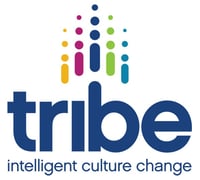
Working internationally? How to prevent a clash of cultures.
Technology and travel is allowing companies to reach out across distances, time zones and often, very different, cultures. Ella Nilakanthi Ford looks at the importance of recognising and adapting to these differences, as well as what happens when companies get it wrong…
Globalisation is something that touches all of us, in some way or another. The business world is full of interactions between people, groups and functions who think, feel and act differently. Add to the mix a variety of different national cultures and you have a vast melting pot of beliefs and behaviours.
Yet these groups of people will still be exposed to common workplace problems that require their co-operation for a solution. This is a key insight for team leaders and managers to acknowledge.
Mixed messages
Working internationally with all these implicit differences can cause a strain on operations and breakdowns in human interaction. That’s why, setting up joint ventures, or working in different countries, must be approached with caution and planning. Options can’t be weighed up simply in economic terms; other aspects, such as communications, performance and safety should also be considered.
What you say to one person in Japan or Germany may be open to misinterpretation in Belgium or Brazil.
Lost in translation
A few years ago, I was working with an energy organisation, concerned about increasing Lost Time Incidents in overseas locations. Investigations found that the company’s internal safety messaging was being lost or misunderstood in translation. The solution? Simple visual safety cards were introduced, as well as strong image based pictures to reinforce their toolbox talks.
Bhopal: A devastating misunderstanding
Communication breakdowns can lead to tragic consequences. In India, the Bhopal Gas Disaster of 1984 continues to stir up a variety of emotions. Over 500,000 people were exposed to Methyl Isocyanate (MIC) gas. Estimates vary on the death toll – the official immediate figure was over 2,259, but, according to a government statement, the leak caused over 558,000 injuries, approximately 3,900 of those being severely and permanently disabling. The cause of the disaster remains under debate.
Closure may never come, but lessons have been learned from Bhopal, one being that a communication breakdown – people misunderstanding the importance of site systems – contributed to a disastrous decision.
Every decision has a consequence. In the case of Bhopal, the decision to turn off the safety systems, turned out to cause more destruction than it should have done. Had people understood why the safety systems should be in working order, the leak would not have been as damaging.
“We always do it this way”
Another aspect of communication is that of cultural style. All sectors and individual firms have their own unwritten rules of communication that must be clearly understood. “We always do it this way” is not necessarily a universal rule for action.
Like countries, every company has a distinct culture – its vision, values, accepted and non-acceptable behaviours.
How a leader communicates and interacts internally will determine this culture. In the case of an acquisition or introducing new practices, it is essential to understand a company’s culture – in both the home country (where Corporate HQ is based) as well as the destination country, before any change is introduced.
When cultures collide…
I spent some time working with a financial services business, based in the US, that outsourced all of its support service; such as Accounting, HR, Procurement and Logistics to Asia.
The culturally more informal American managers were firing off short emails requesting information or action during their working day. This style of communication was read as terse commands by the more formal managers in Asia, who reacted negatively to what they interpreted as criticism.
Remember, emails do not convey emotion but we humans hear emotion when we read them.
Over time, this breakdown in communications led to all sorts of issues escalating. Add to this a marked difference in management styles and the outcome was potentially explosive.
In this example, the Asian management team made some inappropriate appointments (based on their perception as to what was required), one of which lead to a breach of security, after a local gang boss was hired to provide transport for late night workers.
Fortunately, our intervention resulted in this risk being identified and dealt with before employees’ lives were threatened or any other major issues occurred.
Understanding management styles
When working globally, understanding traditional management team composition and interactions can prove crucial. A company’s management style can be hierarchical, blended, collegial or autocratic. Quite often, organisations in the East can be highly hierarchical and formal, whereas in countries like the US or Ireland, companies are relatively non-hierarchical and informal.
Teaming one hierarchical company with a non-hierarchical business is the equivalent of getting a regiment to work alongside a dot com business. Working styles will simply clash, motivation will drop and performance and safety may be affected. Getting an autocratic leader to work with a team used to autonomy can lead to anarchy.
When working with joint ventures, alliances, acquisition or outsourcing partners, try to understand the combined cultures of both companies, in addition to the logistics of their operations. You will then be able to develop a joint set of competencies that reflect both cultures.
Choosing the right people
It can be a costly mistake to send the wrong person to represent or work with an organisation overseas. Even the right representative needs careful preparation to be most productive. Simply because someone is successful in their comfort zone at home, does not mean they will be equally successful in what can appear an alien, sometimes hostile, environment.
It is estimated that it costs on average $150K – $250K for a western company to bring a mid-level executive home early. This doesn’t factor in damage to the company’s reputation, lost business, and the individual.
Research in the US has shown that without pre-departure training, only 15-20% of a company’s successful American mid-level executives can be expected to function fairly effectively overseas. This is borne out by my personal experience working with leaders of different nationalities the world over. Those who have prepared, will find acclimatisation and subsequent success easier to achieve.
Bi-cultural understanding is key
When working in new countries it helps to understand the culture of the nation you are about to enter. So many Western firms fall into the trap of “tokenism” – hiring someone or a team from the destination country for their nationality without due consideration of their bi-cultural understanding.
East- west interactions are littered with stories of spectacular misunderstandings based on somewhat naïve approaches to market entry.
The Facebook debacle, a few years’ ago, in India, will probably go down as a case study of what not to do in a country where one does not understand the dynamics fully.
When Facebook got it (very) wrong…
Facebook’s Free Basics project was an ill-conceived effort to bring Internet access to the poor in India. It originated from an idea, that Zuckerberg documented in his paper ‘Is Connectivity a Human Right?’ to connect the next five billion people.
The key was to make internet access affordable by making it more efficient to deliver data, and improving the efficiency of apps.
What Facebook didn’t understand, however, is that the cost of data access, which is relatively cheap, is not the issue for internet growth in India, it’s the affordability of computers and smartphones that’s getting in the way. Once people have saved to buy phones and tablets, they want to surf the web as western users do. Indian farmers already access weather information on their mobiles and TV. The population expects to view Bollywood music videos, visit a broad range of websites, and download games and entertainment apps.
Facebook also didn’t understand India’s innate distrust of foreign corporations bearing gifts. It appeared unaware of the country’s fierce sense of independence from anything being thrust on them.
Furthermore, there are hundreds of languages in India. How could Facebook possibly curate the right sites for people to visit in all of these?
Inevitably, there was a huge backlash from indigenous IT companies and the highly active social media in India. Facebook’s resulting media campaign to convince the regulator and the public that they only had India’s best interests in mind, was greeted with cynicism. Facebook, with its size and scale and huge user base in India, survived this strong dent to the company’s credibility but we can all learn from this example.
Planning for overseas work
So, for anyone going to work overseas, make sure you plan, prepare and map every single aspect of the venture. A two-day preparation workshop will develop a clear plan and instil your people with so much confidence. Be clear about the corporate and national culture/s you are working with.
Speaking the same language does not mean you have a shared understanding of the message, and people will not necessarily tell you if they are not clear. Refine your communications to suit the audience and national culture and make sure that you think through how they will land in the country you are working.
About Kanthi (Ella NilaKanthi) Ford
Lead Consultant
Kanthi is a highly skilled and experienced leadership coach, culture and behaviour expert. She has a fantastic ability to engage people and has delivered many complex culture change programmes for Tribe clients. An acclaimed author, her most recent book is called ‘Bias Impacts: How Culture and Diversity Affects the Leadership Journey’.
Specialisms: Diversity, equity and inclusion, Leadership and employee engagement, Behaviour change psychology, Global delivery
Industry experience: Aviation and Aerospace, Agri-business, Agri-food, Banking and Fintech, Construction, Energy (renewables, oil, gas, hydrogen and shale), Facilities, Healthcare, Manufacturing, Pharmaceutical, Rail, Retail, Technology, Telecoms, Utilities
About Ella NilaKanthi Ford
Lead Consultant
Kanthi is a highly skilled and experienced leadership coach, culture and behaviour expert. She has a fantastic ability to engage people and has delivered many complex culture change programmes for Tribe clients. An acclaimed author, her most recent book is called ‘Bias Impacts: How Culture and Diversity Affects the Leadership Journey’.
Specialisms: Diversity, equity and inclusion, Leadership and employee engagement, Behaviour change psychology, Global delivery
Industry experience: Aviation and Aerospace, Agri-business, Agri-food, Banking and Fintech, Construction, Energy (renewables, oil, gas, hydrogen and shale), Facilities, Healthcare, Manufacturing, Pharmaceutical, Rail, Retail, Technology, Telecoms, Utilities



